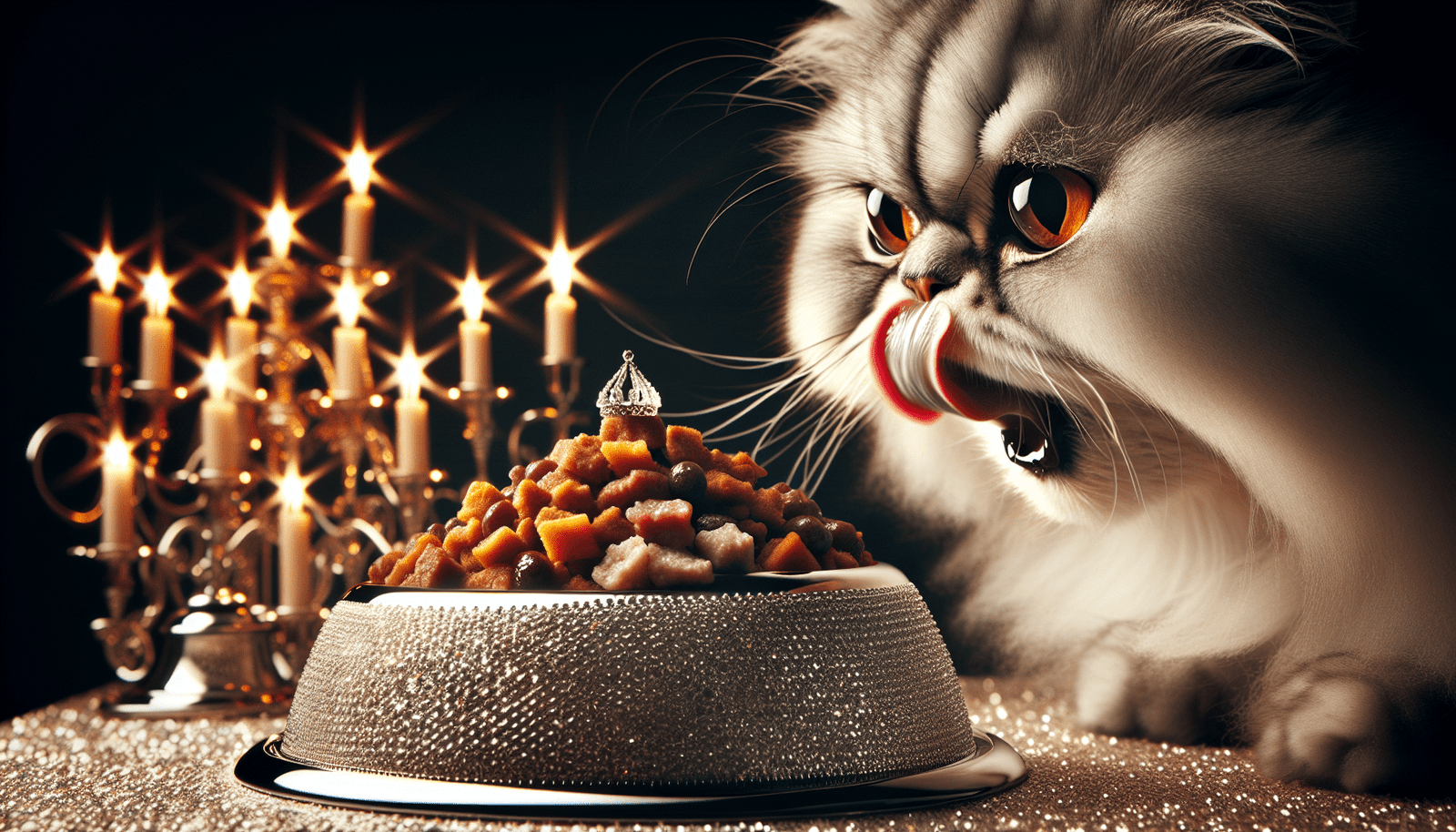Welcome to our article on 5 tips for feeding your Persian cat! As a loving and protective pet owner, you want to ensure that your precious feline friend receives the best nutrition possible. In this article, we will explore important considerations such as dietary needs, feeding schedule, portion control, special considerations for Persians, and the importance of water intake. By following these tips, you can help keep your beloved Persian cat healthy and happy for years to come. Have you ever found yourself wondering how to properly feed your beloved Persian cat? With their luxurious coats and charming personalities, it’s essential to ensure they are getting the right nutrition to stay healthy and happy. Here are five tips to help you navigate the world of feeding your Persian feline friend.
Understanding Your Persian Cat’s Dietary Needs
When it comes to feeding your Persian cat, it’s crucial to understand their unique dietary needs. Persian cats are known to have sensitive stomachs and can be prone to certain health issues, such as kidney disease and obesity. Therefore, it’s essential to provide them with a balanced diet that meets their specific nutritional requirements.
Choosing the Right Cat Food
Choosing the right cat food for your Persian cat is the first step in ensuring they receive proper nutrition. Look for high-quality cat food that is specifically formulated for breeds with long hair, such as Persians. These foods often contain nutrients that support coat health and reduce hairballs. Additionally, consider your cat’s age, activity level, and any underlying health conditions when selecting their food.
Feeding Schedule and Portion Control
Establishing a feeding schedule and practicing portion control are key components of maintaining your Persian cat’s health and weight. Persian cats are prone to obesity, so it’s essential to monitor their food intake and provide the appropriate amount of food each day.
Feeding Your Persian Cat Throughout the Day
It’s recommended to feed your Persian cat small, frequent meals throughout the day rather than leaving food out all day long. This can help prevent overeating and obesity. Divide their daily food allowance into multiple meals and establish a consistent feeding schedule to promote healthy eating habits.
Proper Portion Sizes
Determining the right portion size for your Persian cat can be challenging, as it depends on factors such as their weight, age, and activity level. Consult with your veterinarian to determine the appropriate amount of food to feed your cat each day. Be sure to measure their food accurately and avoid overfeeding to prevent weight gain and related health issues.

Hydration is Essential
Proper hydration is essential for your Persian cat’s overall health and well-being. Persians are prone to urinary tract issues, so it’s crucial to ensure they are drinking enough water throughout the day.
Encouraging Water Consumption
Encourage your Persian cat to drink more water by providing them with fresh, clean water in a shallow bowl. Some cats prefer running water, so you may want to consider investing in a cat fountain to keep them hydrated. You can also incorporate wet cat food into their diet, as it contains a higher moisture content than dry food and can help increase their overall water intake.
Special Dietary Considerations
Persian cats may have specific dietary considerations that need to be addressed to maintain their health and well-being. Whether your cat has allergies, sensitivities, or medical conditions, it’s essential to tailor their diet to meet their individual needs.
Food Allergies and Sensitivities
If your Persian cat has food allergies or sensitivities, you may need to switch to a hypoallergenic or limited ingredient diet. Look for cat foods that are free of common allergens such as grains, poultry, or artificial additives. Your veterinarian can help you identify any food allergies or sensitivities your cat may have and recommend an appropriate diet.
Medical Conditions
Persian cats are prone to certain medical conditions, such as kidney disease, which may require a special diet. Your veterinarian may recommend a prescription diet that is low in protein, phosphorus, and sodium to support kidney function. It’s essential to follow your vet’s recommendations carefully and monitor your cat’s health closely when managing a medical condition through diet.

Supplements for Optimal Health
In addition to a balanced diet, supplements can be beneficial for maintaining your Persian cat’s optimal health. Supplements can help support coat health, promote joint health, and boost overall well-being in your feline friend.
Omega-3 Fatty Acids
Omega-3 fatty acids are essential for your Persian cat’s coat health and skin condition. These fatty acids can help reduce shedding, reduce inflammation, and promote a shiny, healthy coat. Consider adding a fish oil supplement to your cat’s diet to provide them with the omega-3 fatty acids they need.
Joint Supplements
Persian cats are prone to joint issues, such as arthritis, as they age. Joint supplements containing glucosamine and chondroitin can help support your cat’s joint health and mobility. Consult with your veterinarian to determine the most appropriate joint supplement for your Persian cat’s specific needs.
Monitoring Your Persian Cat’s Weight and Health
Regularly monitoring your Persian cat’s weight and overall health is essential to ensure they are thriving and maintaining a healthy weight. Obesity can lead to a variety of health issues, so it’s crucial to keep an eye on your cat’s body condition and make adjustments to their diet as needed.
Body Condition Score
Use a body condition score chart to assess your Persian cat’s weight and body condition. A healthy cat should have a defined waist when viewed from above and should have a visible abdominal tuck when viewed from the side. If you notice your cat is gaining or losing weight, consult with your veterinarian to determine the best course of action.
Regular Veterinary Check-ups
Schedule regular veterinary check-ups for your Persian cat to ensure they are in good health and receiving the appropriate care. Your veterinarian can assess your cat’s weight, body condition, and overall health during these visits and provide guidance on how to best support their well-being through diet and lifestyle adjustments.
By following these five tips for feeding your Persian cat, you can help ensure they receive the proper nutrition and care they need to thrive. Remember to consult with your veterinarian for personalized recommendations and guidance tailored to your cat’s specific needs. With a balanced diet, proper portion control, and regular monitoring, you can help your Persian cat live a long, healthy, and happy life.

